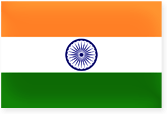Categories list
What are Generics
- Introduction
- Are generic drugs as reliable as brand name pills?
- Are generic drugs regulated?
- Are generic drugs patented?
- Why are generic drugs cheaper than branded medicine?

Many people are asking what generics mean.
Nowadays, this is the one question that many people ask when it comes to taking medicines. Aside from the cheaper price how is it different from other medicines?
Let us find out below.
In everything that we buy we have two distinct groups: the generics, and the branded. Brand items are born out of marketing and identification of a product. For example, Apple is a brand and we can say a computer is the generic product for Apple.
In medicine, a generic drug is made with the same ingredients and is available in the same dosage and strength as branded pills. Most of the time the dosage mirrors the amount recommended when one uses brand name drugs. Generics also produce the same effects to the body as brand name pills. In composition, amount, and effects to the body, generics and brand name drugs are identical.
The main, but minor, difference of brand name pills and generics is the "name" or the tag. These tags are marketing terms or lingos so that the pill can differentiate itself from the market. Brand-name pills have unique logos, color, and shape. On the other hand, generic pills look different from brand name pills because the name and the shape of the pills are a registered trademark. However, aside from the shape and the color, brand name pills and generics are identical.
Are generic drugs as reliable as brand name pills?

Generic drugs are tested under the same standards as brand-name drugs. Each generic drug is laboratory tested so that the same amount is absorbed into the body as with brand-name drugs.
Generic drugs also have the same side effects as brand-name products. Generic drugs work no differently in children or elderly.
| Brand pills | Generic pills | |
|---|---|---|
| Tag, Shape & Color | Different | |
| Active Ingredient, Dosage & Effect | The Same | |
| Regulation & Reliability | FDA approved | Indian FDA approved. Tested under the same standards as brand name drugs. |
| Price | High | Low. As there is no need to spend money on research, marketing & advertising. |
Are generic drugs regulated?
Generic drugs are FDA approved just like brand-name drugs. The FDA, or Food and Drug Administration, regulates the market and protects the public by inspecting drug manufacturers, and recalling products that do not meet stringent standards. Manufacturing plants are also inspected by the FDA to make sure that they are compliant with FDA standards. The U.S Food and Drug Administration has accomplished 3,500 inspections annually to ensure that the standards for medicines are met. For example, Intas (one of our suppliers in India) has upgraded its manufacturing capabilities. It has regulatory approval of agencies like FDA, MHRA, TGA, ANVISA.
Are generic drugs patented?

No, but having a patent does not make it any more reliable.
Manufacturers patent their products so that they could have the exclusive rights to produce a drug for a period of time. As defined, a patent is a policy provided to people who seek protection for their intellectual property. In effect, the government gives the inventor the right to produce and sell his invention exclusively in exchange for sharing the details of the invention to the public domain. As an intellectual property, owners can also license their patented products as well as mortgage, assign, or transfer the right to other parties. These rights only apply until the patent expires.
Generic versions of these medicines can be produced after their patent expires since it will not be legal for anyone to take advantage of the invention without repercussions. The length of applied patents for US drug products is 20 years. Although it may seem that it is a long time, we have to remember that patents must be approved first before clinical trials begin. Excluding clinical trial and testing, the life of a US drug patent is pegged at seven to twelve years.
Generic pills can be produced based on these 4 reasons:
- The patent has expired
- The patent for the drug is invalid, or hard to enforce
- Non-existence of a drug patent from the start
- Under government where U.S. patents are not enforced.
For guidance on the legal issues of generic medicine, you can refer to the Drug Price Competition and Patent Term Restoration Act of 1984. This law essentially increased the protection of patented products, but also allows generic medicines makers to produce their medicines. Generic drugs are effective, safe and FDA approved.
The process of patenting is not only exclusive in the United States. There are different standards of patenting in India in China and other countries. The bottom-line is that with the different patenting policies from different countries, patenting is a non-issue in the long run.

India passed the Patent Act in 1970, which allows Indian companies to make generic and cheaper alternatives for well known medicines. Then on 2004, India changed its patent standards to allow patents on chemicals. As of date, there are approximately 6,000 patents filed under the Indian government. India's patent system is designed to encourage firms to invest in low-cost manufacturing processes and make the generic medicines widely available to the market at low prices.
With this development, India is now producing roughly half of the world's antiretrovirals, most with modest cost and with the country also supplying much of the ingredients for the drug.
All our medications are produced by the following Indian Pharmaceutical Companies:
- Aurochem Laboratories
- Unicure Remedies
- The Chemical, Industrial & Pharmaceutical Laboratories (Cipla)
- Ajanta Pharma
- Intas Pharmaceuticals
- Ind-Swift Laboratories
- Olcare Laboratories
- Glenmark Pharmaceuticals
- Micro Labs
- Ranbaxy Laboratories
- Unichem Laboratories
- German Remedies
- Sun Pharmaceutical Industries
At the website of each company you can find all the information about the produced products, technology services, checking control, research laboratories and the pharmaceutical news. We have been working with these reputable suppliers for nine years already. Our customers are really satisfied with the quality of our medications. Because of the cheaper cost, our customers can afford to buy generic drugs in bulk. You can also do the same.
Why are generics cheaper?

Generics are much cheaper than brand-name drugs because generic companies do not have overhead cost such as research and marketing. Most generic drugs are manufactured off-shore and sold online. Since manufacturers do not spend on advertising, research, and creating a physical store, the cost savings are passed on to the consumer.
The US FDA and its arm, the Center for Drug Evaluation and Research stated that because of the existence of generic medicines, the drug costs per day can fall up to 14%. Patients who are fully satisfied with generic medicines can enjoy as much 52% in savings from generic medicines.
Generic pills, 44 %

Today, more than 44 % of all prescriptions drugs in the United States have an equivalent generic counterpart. Using generic medication is a decision that you can make with the help of your physician and pharmacist.
Consult with your physician if any prescription medication that you are currently taking can be replaced with generic drugs. By taking generic drugs, you will see your medicine bills drop dramatically while still maintaining your drug dosage.
Special offers
to talk
A generic drug is made with the same active ingredients and is available in thesame strength and dosage form as the equivalent brand-name product. Generic drugs produce the same effects in the body as the brand-name drugs, because both contain the identical active ingredients...

 0 items
0 items
